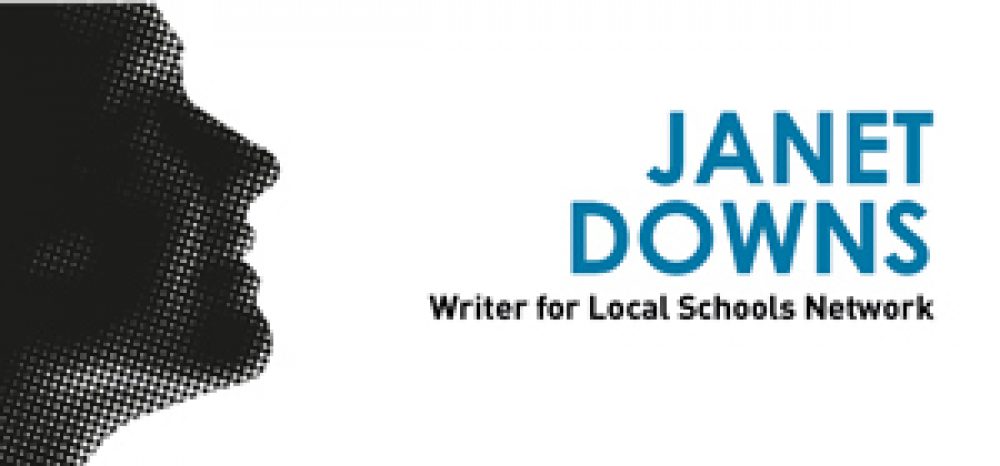State school campaigner Janet Downs explains why proposals for a new ‘no frills’ private school in England – charging parents just £52-a-week – will flop…
Low fee paying (LFP) schools already exist in England.
They are schools not affiliated to the Independent Schools Council and likely to charge lower fees. But even their low fees are not as likely to be as low as the £2,700-a-year fee charged by the proposed Independent Grammar School: Durham (IGS: Durham).
Professor James Tooley, one of the school’s founders, says fees will be low because the school will have ‘no frills.’ IGS: Durham will offer an education ‘traditionally associated with a grammar school’ in premises which will be ‘simple and unpretentious’ but ‘clean, hygienic and welcoming’.
The school will use Core Knowledge UK. This is an anglicised version of a curriculum developed in the United States and is regularly promoted by schools ministers.

The first book, ‘What Your Year 1 Child Needs to Know’, was co-edited for the UK by Annaliese Briggs, the short-lived head of Pimlico Free School. This book, and others in the series, will be used to “significantly enhance” the curriculum at IGS: Durham.
Core Curriculum UK is like Marmite: you love it or loathe it. The books have an irritating Joyce Grenfell style. And there are mistakes. Year 1 pupils learn “History starts with the Romans!” Year 6 are told Bolivia is the largest South American country and Bolivians speak Portuguese (see image).
There’s nothing wrong with syllabus planning – it’s vital. But closely following an off-the-shelf product can mean less flexibility for teachers. There’s a danger that such books could become scripts for unqualified teachers. And using unqualified staff reduces costs.
There’s no suggestion this would happen at IGS: Durham. But it’s what happens in many LFP schools in other parts of the world.
An example is Bridge International Academies (BIA), which runs schools following what has been called the “academy in a box” model in countries in the global south.
But in September the Ugandan government ordered all BIA schools to close, a decision that BIA is still appealing. One reason was the schools used materials that couldn’t promote teacher/pupil interaction. The others were that BIA schools operated in shoddy, unhygienic buildings.
Again, these last two don’t apply to IGS: Durham. But the question remains whether refurbished, redundant buildings can really offer the same standard of accommodation, particularly at secondary level, as most state schools? This also applies to many free schools, of course.
Professor Tooley’s work on LFP schools is described in his book The Beautiful Tree, which describes the proliferation of LFP schools in Hyderabad, India. But in 2010, Sussex University academics found LFP schools reduced costs by hiring largely untrained teachers. And they questioned whether LFP schools were affordable to the extent Professor Tooley claimed: ‘Tooley’s reports in terms of LFP affordability should be treated with caution,’ they warned.
It plays on the regrettably snobbish view that independent schools are always superior
The establishment of IGS: Durham is supported by the claim it offers parents choice. But the OECD found offering choice wasn’t linked to a country’s performance in PISA tests. PISA in Focus 42 (2014) said ‘in systems where parents can choose schools, and schools compete for enrolment, schools are often more socially segregated’.
The website of IGS: Durham implies that ‘private’ and ‘grammar’ are superior to other types of state schools. They aren’t.
The private school ‘advantage’ disappears when socio-economic background is taken into account. And the ‘success’ of grammars is down to their selective intake.
Adopting the trappings of private schools, for example, calling terms ‘Michaelmas’, ‘Lent’ and ‘Trinity’ as IGS: Durham will do, does not automatically result in an outstanding education.

Yet that’s what the school’s website claims: it says it ‘offers an outstanding education’. This appears a little premature. And perhaps misguided since the co-founder, Chris Gray, was head of Grindon Hall Christian School when it was judged “inadequate”.
Introducing more LFP schools into the already fragmented English school system is not the answer to improving education in England. It plays on the regrettably snobbish view that independent schools are always superior to state-funded ones. Non-association private schools are less likely to be better than state schools, which raises the question why more are needed.
Janet Downs is a blogger for Local Schools Network







Since writing the above, I’ve discovered the building intended to house the proposed IGS: Durham is not redundant as I imply above. It appears to be a thriving church, Christchurch Claypole. The building was refurbished in 2013
I’m sorry to say that your article is a misleading representation of IGS:Durham based on selective reading interspersed with disclaimers, like, ‘There’s no suggestion this would happen at IGS: Durham’, and reflective of your entrenched views on education. I suggest you visit the school and see for yourself why the children are thriving, the parents are happy and the staff rightly proud of their achievements in spite of the cynics who would rather that innovative thinkers fail than to review their own conservative views. You would also discover that the name of the street is not ‘Claypole, as you wrote, but Claypath. Oh, and the Civitas books are excellent. I don’t normally respond to bloggers, but in this instance it was necessary to set the record straight.
“The private school ‘advantage’ disappears when socio-economic background is taken into account. And the ‘success’ of grammars is down to their selective intake.”
If the advantage disappears, why is there so much hostility to them from the left?
A girl I know transferred schools in Year 8 from comprehensive to grammar. She said she learned twice as much each lesson in the new school. She said in the comprehensive there were some lessons where the talking and shouting of the children NEVER CEASED. There were gangs in the comprehensive school, but none in the grammar school. She says the children are quieter and more friendly. The atmosphere is calmer and the whole school is quieter. There is more order.
This is why parents want their child to go to grammar school, not just the examination results. You put ‘advantages’ in quotes as if they do not really exist, but to this girl they were very real.
The greatest injustice in British schools is when the well behaved low ability have to share with the loud and badly behaved in the bottom sets. There should be selection by behaviour. It is not right that low ability children who want to learn have to suffer in the bottom sets from the behaviour of the bad elements who, although they are in the bottom sets, are often intelligent. What right have they, who have ability, to deny an education to well-behaved children who do not have their capacity to learn, but who want to learn, and could learn so much if selection by behaviour were allowed by schools.
The fact that those in the education authorities would not allow it just shows that all this talk about being ‘caring’ is false.
In the UK, the private school advantage doesn’t just disappear when socio-economic background is accounted for. PISA 2010 found that when socio-economic background is factored in, then UK state schools outperform private schools. (See OECD document, Viewing the UK School System through the Prism of PISA’.
Why hostility to private schools? Because they’re held up as being better than state provision (even when they’re located in premises which are below that which would be expected in state schools). State schools are supposed to be able to benefit from private schools’ ‘DNA’.
This may not seem to matter except that children are judged by the schools they attend (note the advantage given to children from private schools via the old school tie network). This means money, not merit, can buy this advantage.
Re your evidence re the girl who transferred to a grammar from a comp. It’s one child. And it’s anecdotal. I can counter this with one girl at a grammar school who complained to me that her class did nothing but chat when they had a supply teacher. And on her first week at the school she encountered bullying by an older grammar school girl on the bus.
Is either of these evidence of the wholesale collapse of a system? No.
You’re right about bad behaviour. It should be dealt with irrespective of what set a child is in. And where is your evidence that teachers are not allowed to deal with poor behaviour by ‘education authorities’?
“And where is your evidence that teachers are not allowed to deal with poor behaviour by ‘education authorities’?”
The inclusion policy of the government results in (1) schools being fined for exclusions and (2) schools are downgraded by Ofsted for exclusions.
I am not saying the teaching is necessarily better in the grammar schools, but the reason the levels of achievement are higher in my opinion is that the atmosphere is calmer and therefore less time is wasted by bad ones dominating the lessons. In other words, the bad influences are fewer. Put simply, it is easier to learn if there is not anarchy going on all around you.
There are no gangs in the local grammar schools, but there are gangs in all the local state schools where children that I teach attend. In the last month alone I have spoken to the parents of two girls whose parents have withdrawn them from mainstream school due to bullying. They would like them to go back to mainstream but the better state schools have no vacancies.
If anyone drives past a grammar school at 4pm as the children leave school, then a state school at 4pm the next day, they will observe for themselves a dramatic difference in behaviour, if the two schools are close by and therefore in the same general catchment area.
I agree that there are nasty types in grammar school also. In my view if there were schools that specialised in ‘good behaviour’ as opposed to selection by an exam, then such schools would be even more popular than grammar schools.
School years should be, and easily could be, happy years for all well-behaved (within reason) children. It is an outrage that those other children who are not well-behaved (ie do not respond to sanctions) are able to spoil these school years for others by their bad behaviour by being kept in mainstream schools. This is because the left very keenly want it to be so. They cannot stand the idea that the bad ones are separated out. Because of this strongly held political view, so many children have to suffer both in terms of learning and anxiety caused by the bad ones dominating. This shows the left are not caring as they claim to be.